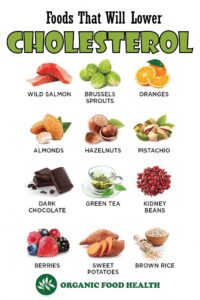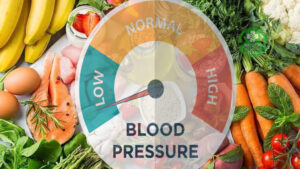Cholesterol is a waxy substance found in every cell of our bodies. It plays a crucial role in the production of hormones, vitamin D, and bile acids that aid in digestion. However, when cholesterol levels become elevated, it can lead to various health problems, including heart disease and stroke. The good news is that there are several effective ways to lower cholesterol levels naturally and reduce the risk of developing these conditions. In this article, we will explore some of the most compelling and well-researched strategies to achieve healthy cholesterol levels.
Understanding Cholesterol and Its Types
Before we dive into the ways to lower cholesterol levels, it’s essential to have a basic understanding of cholesterol and its different types. Cholesterol is transported in our blood by lipoproteins, which are made up of fat (lipid) and protein. There are two main types of lipoproteins:
1. Low-Density Lipoprotein (LDL)
Low-Density Lipoprotein, commonly known as LDL or “bad” cholesterol, carries cholesterol from the liver to the cells in our body. However, if there is an excess of LDL particles in the bloodstream, they can build up in the arteries, forming plaques that narrow the blood vessels and increase the risk of heart disease.
2. High-Density Lipoprotein (HDL)
High-Density Lipoprotein, also known as HDL or “good” cholesterol, helps remove excess cholesterol from the bloodstream and transports it back to the liver for excretion. Higher levels of HDL cholesterol are associated with a lower risk of heart disease.
1. Adopt a Heart-Healthy Diet
One of the most effective ways to lower cholesterol levels is by adopting a heart-healthy diet. The following dietary strategies can help reduce LDL cholesterol and improve overall cardiovascular health:
- Choose healthy fats: Replace saturated fats, found in animal products and some tropical oils, with healthier fats like monounsaturated fats found in olive oil, avocados, and nuts.
- Increase fiber intake: Foods rich in soluble fiber, such as oats, barley, legumes, and fruits, can help lower LDL cholesterol levels.
- Consume omega-3 fatty acids: Include fatty fish like salmon, mackerel, and sardines in your diet, as they are rich in omega-3 fatty acids that can help lower cholesterol levels.
- Avoid trans fats: Trans fats, often found in processed and fried foods, raise LDL cholesterol levels and increase the risk of heart disease. Read food labels and avoid products with partially hydrogenated oils.
- Limit cholesterol-rich foods: Reduce your intake of high-cholesterol foods, such as organ meats, shellfish, and full-fat dairy products.
2. Regular Physical Activity
Engaging in regular physical activity is not only beneficial for weight management and overall health but also helps raise HDL cholesterol levels and lower LDL cholesterol. Aim for at least 150 minutes of moderate-intensity aerobic exercise or 75 minutes of vigorous exercise per week. Incorporate activities like brisk walking, jogging, cycling, swimming, or dancing into your routine.
3. Maintain a Healthy Weight
Being overweight or obese can contribute to higher cholesterol levels and increase the risk of heart disease. Losing excess weight and maintaining a healthy weight can help improve cholesterol levels. A combination of a healthy diet and regular exercise can be effective in achieving weight loss goals.
4. Quit Smoking
Smoking not only damages the lining of the blood vessels but also lowers HDL cholesterol levels. Quitting smoking can help improve cholesterol levels and reduce the risk of heart disease. Seek support from healthcare professionals, join smoking cessation programs, or consider nicotine replacement therapies to increase your chances of successfully quitting.
5. Limit Alcohol Consumption
While moderate alcohol consumption can have some heart benefits, excessive alcohol intake can raise cholesterol levels and increase the risk of heart disease. It is recommended to limit alcohol consumption to moderate levels, which means up to one drink per day for women and up to two drinks per day for men.
6. Incorporate Plant Sterols and Stanols
Plant sterols and stanols are substances naturally found in plants that can help lower LDL cholesterol levels. They work by blocking the absorption of cholesterol in the intestines. These compounds are often added to certain margarines, orange juice, and other food products. Including these fortified products in your diet can contribute to reducing cholesterol levels.
7. Manage Stress Levels
Chronic stress can contribute to elevated cholesterol levels and increase the risk of heart disease. Find healthy ways to manage stress, such as practicing relaxation techniques, engaging in hobbies, spending time with loved ones, or seeking professional help if needed. Incorporating stress management techniques into your daily routine can have a positive impact on your cholesterol levels and overall well-being.
8. Get Enough Sleep
Getting adequate sleep plays a vital role in maintaining optimal health, including cholesterol levels. Lack of sleep can disrupt normal metabolism and lead to higher LDL cholesterol levels. Aim for 7-9 hours of quality sleep per night to support your overall health and cholesterol management.
9. Consider Supplements
In some cases, dietary supplements can be used to complement other cholesterol-lowering strategies. However, it is important to consult with a healthcare professional before starting any supplements. Some supplements that have shown potential in lowering cholesterol levels include:
- Omega-3 fatty acids: Fish oil supplements can help lower cholesterol levels, especially triglycerides.
- Plant sterols and stanols: These supplements can be taken in capsule form and have been shown to lower LDL cholesterol levels.
- Red yeast rice: Derived from a type of yeast fermented on rice, red yeast rice contains naturally occurring statins that can help lower cholesterol levels.
- Garlic extract: Garlic has been used for centuries for its potential health benefits, including cholesterol reduction.
Conclusion
Elevated cholesterol levels are a significant risk factor for heart disease and stroke. Fortunately, there are numerous ways to lower cholesterol levels naturally and reduce the risk of developing these conditions. By adopting a heart-healthy diet, engaging in regular physical activity, maintaining a healthy weight, quitting smoking, limiting alcohol consumption, and incorporating plant sterols and stanols, individuals can effectively manage their cholesterol levels. Additionally, managing stress levels, getting enough sleep, and considering certain supplements can further support cholesterol-lowering efforts. Taking proactive steps towards maintaining healthy cholesterol levels can significantly contribute to overall cardiovascular health and well-being.
FAQs After The Conclusion:
1. What is considered a healthy cholesterol level?
A healthy total cholesterol level is typically considered to be below 200 milligrams per deciliter (mg/dL). LDL cholesterol levels should ideally be below 100 mg/dL, while HDL cholesterol levels should be 60 mg/dL or higher.
2. Can I lower my cholesterol without medication?
Yes, it is possible to lower cholesterol levels without medication by making lifestyle changes such as adopting a healthy diet, engaging in regular physical activity, maintaining a healthy weight, quitting smoking, and managing stress levels.
3. How long does it take to lower cholesterol naturally?
The time it takes to lower cholesterol levels naturally can vary depending on the individual and the severity of the condition. However, with consistent lifestyle changes, it is possible to see improvements in cholesterol levels within a few months.
4. Are all fats bad for cholesterol?
No, not all fats are bad for cholesterol. Saturated fats and trans fats tend to raise LDL cholesterol levels. On the other hand, monounsaturated fats and polyunsaturated fats, particularly omega-3 fatty acids, can help lower LDL cholesterol levels and raise HDL cholesterol levels.
5. Can genetics affect cholesterol levels?
Yes, genetics can play a role in cholesterol levels. Some individuals may have a genetic predisposition to higher cholesterol levels, which can make it more challenging to manage cholesterol through lifestyle changes alone. In such cases, medication may be necessary in addition to lifestyle modifications.
Summary
In summary, maintaining healthy cholesterol levels is crucial for overall cardiovascular health. By adopting a heart-healthy diet, engaging in regular physical activity, maintaining a healthy weight, quitting smoking, limiting alcohol consumption, and incorporating plant sterols and stanols, individuals can effectively lower their cholesterol levels. Managing stress levels, getting enough sleep, and considering certain supplements can further support these efforts. With consistent lifestyle changes, it is possible to achieve and maintain healthy cholesterol levels, reducing the risk of heart disease and stroke.




